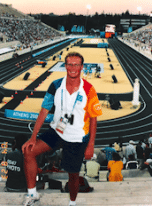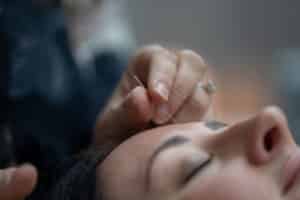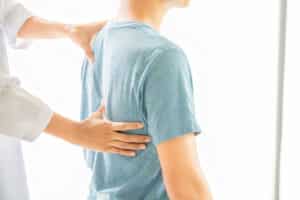Table of Contents

Our Neuro-Release Therapy
Athletes often use us for speedy recovery after events and training, we can offer high level maintenance – and “Biomechanical Tune Up”.
Practitioners from The Hatfield Practice are able to use skilled triage techniques ( Acupuncture, Osteopathy and Physiotherapy) in order to speed your recovery at the fastest rate. Phone us at The Welwyn and Hatfield Practice and ask to speak to Ian Norman. We are so confident that if we cant help you you wont be charged a penny. Thats honestly good value for money and will cetainly present a no risk challange
We are specialists and we will be able to increase your speed of recovery from injury, also we can play a welcome supportive role with the help we can give leading up to (and during) major championships or local competitions.
Sports Neuro Release Therapy
NEURO-RELEASE THERAPY is a treatment designed by osteopath Ian Norman to help restore ease of movement through the peripheral nervous system.Our neural (nerve ) system is the peripheral expressions of our control centre the brain. This system is a dynamic continuous living, learning , expression of our unique experiences emotional and physical. Without the nervous system there is nothing but a collection of cells, all specialised without a unified purpose with nothing to lead them there would be no life, muscle activity,no reflexes, no energy, no fluid movements and blood exchange .
Nerve pathways breathe life and movement into our bodies and are at the centre of all physiological processes. Using a highly trained sense of touch and an excellent working knowledge of anatomy, injury mechanisms and the nervous system we can trace along the nerve pathways and release the nerves as they course between fascia, muscles and through bony channels. This often has quite a profound affect on muscle stretch receptors allowing the muscle the relax further thereby improving overall function. Treatment itself aims to ” mobilise ” your neural system through a series of tension and palpation tests specific to your problem.
These techniques are especially useful with chronic irritating disc problems, recurrent muscle strains (especially hip flexors, shoulder and hamstring injuries) and recurrent disc based and non – resolving performance and pain problems.
YOUR TREATMENT PLAN
1) Mobilise restricted joints: Joints that are not moving 100% freely will slow you down costing the body effort and time therefore requiring more muscular push and energy, therefore tiring you more slowing you down.
Your potentionally full range of movement will not be achieved neither reducing efficiency and performance.
2) Stimulate , Stretch and Loosen specific muscle groups: Muscles that are not loose, relaxed and alert will not react fast and explosive but will be more prone to injury and consume excessive energy.
Tight muscles will also reduce your range of movement affecting your sport.
3) Free up the diaphragm insertions of this amazing muscle attach to the spine and ribs…. A tight diaphragm will restrict your breathing and recovery hence reducing your oxygen intake and adversedly affect your performance.
4) Connect the body: One part of the body, that doesn’t function optimally can affect other areas e.g :-
A little neck restriction, irritating the motor ( muscle nerves ) fibres of the nerves that supply the arm can reduce the responce of the target muscles as far away as the fingers. Low lumbar spine nerve tension can irritate and lead to hamstring pulls .Neuro – muscular release therapy will make sure the nerve will slide freely within the conective tissue and fascia.
Muscle chains are muscles which enhance (or reduce) other muscles eg: Postural muscles in the neck can affect postural muscles in the lower back, so a lower back weakness can be caused by a muscular tension in the neck.
In the normal gait pattern, the arm swing is chained to the leg swing, so a shoulder problem can affect the hip (and vice versa) through a faulty muscle chain.
5) Target known areas of weaknesses and areas prone to injury ??
Have you got any known weaknesses or injury prone areas ?? special attention will be given to this.
Our bio mechanics starts with case history taking, top-to-toe examination incl. muscular performance and joint movements. Then the treatment typically involves manipulation of the spine (helping the central control of the whole body), manipulation of peripheral joints and soft-tissue work including neuro – muscular therapy and release techniques to improve the tensions throught the neuro system wich often lead to pulled tissue disc, joint and nerve injuries.The athlete usually instantly feels free and invigorated do to improved neuro elasticity and endorphin release, ready to perform to their very best.
We can hope to get you better where all else has failed if not NO CHARGE
Achilles tendon injuries
A/C joint separation of the shoulder
Ankle complaints
Back pain
Calf strain
Cartilage problems
Dislocated shoulder
Foot facture rehabilitation
Golfers Elbow
Hamstring injuries
Heel pain
Hip problems
Jumpers knee
Knee pain
Muscle cramps
Neck problems
Pain along the shin bone
Patellar tendonitis
Plantar fasciitis
Post surgery rehabilitation
Recurrent sport injuries
Stress fractures
Swollen muscles
Tendonitis
Tennis Elbow
and a variety of other sports specific injuries.
Lower back pain (lumbar pain)
Herniated and bulging discs (“slipped disc“)
Sciatica
Upper back pain (thoracic pain)
Neck pain (cervical pain)
Whiplash
Headache
Migraine: extremely bad headache: a recurrent, throbbing, very painful headache, often affecting one side of the head and sometimes accompanied by vomiting or by distinct warning signs including visual disturbances.
Repetitive strain injury (RSI)
Wrist injuries
Tennis elbow
Golfer’s elbow
Frozen shoulder
Shoulder dislocation (glenohumeral and acromioclavicular)
Rib injuries incl. recovery from fractures
Sternal pains
Hip pain
Pulled hamstring and other muscle tears and strains
ITB (ilio tibial band)
Achilles tendon tear and strain
Sprained ankle and other sprains
Foot pain
Dropped metatarsal head
Running injuries
Our Neuro-Release Therapy





